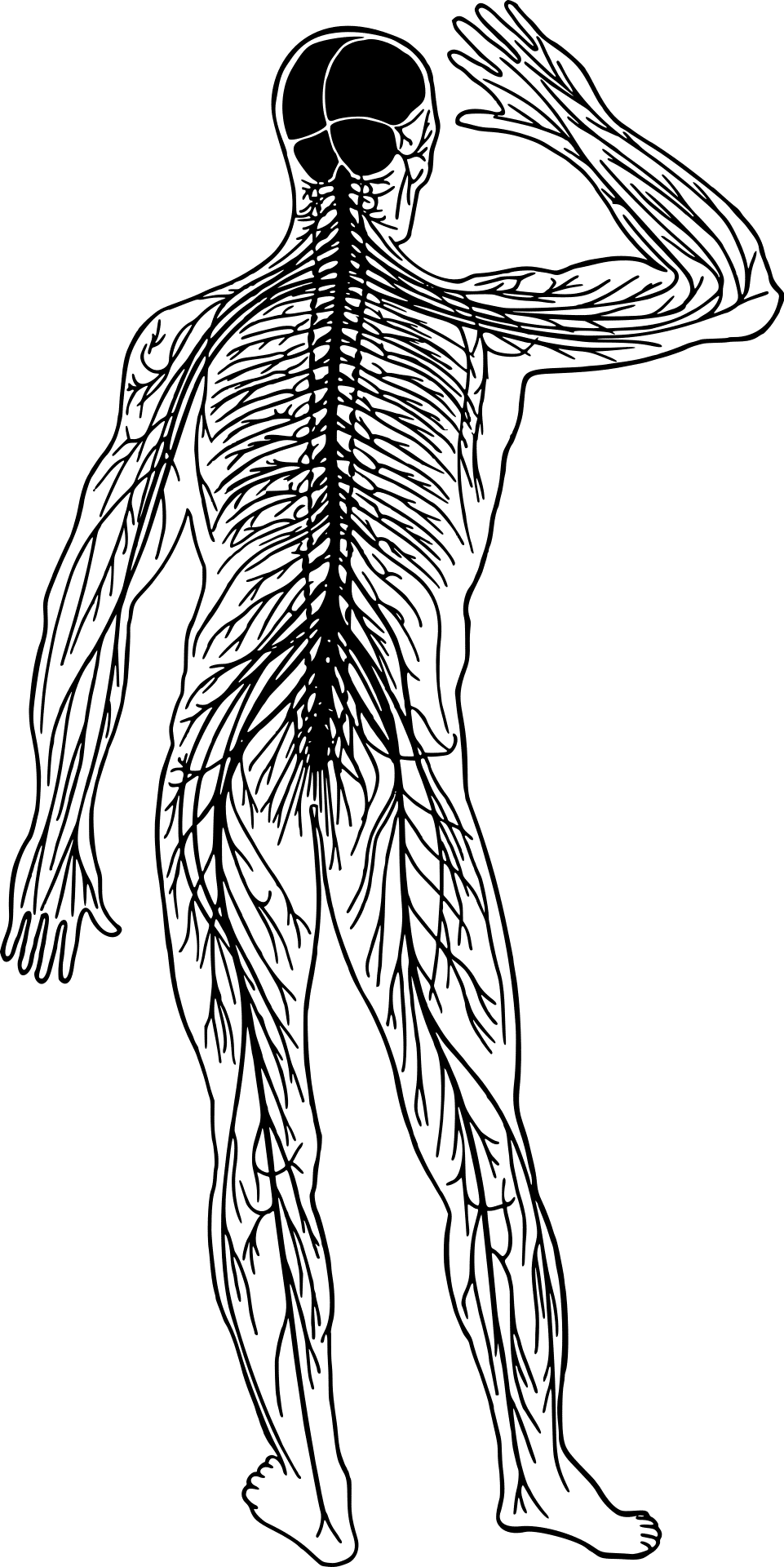
Nerve pain.... Ouch!!!!!!
Pinched nerves are a prevalent concern, affecting many individuals who experience shooting pain traveling down their arms and legs. It's a condition that can significantly impact one's daily life, causing discomfort and hindering normal activities. Unfortunately, there's a common misconception that surgical procedures are often necessary to release these trapped nerves. However, this is not always the case.
Depending on the severity, this condition can sometimes be treated at home- keep reading for home remedies. If the pinched nerve is interrupting your daily activities, it may be wise to consult a health professional. Chiropractic care offers a non-invasive and effective alternative for individuals dealing with pinched nerves, providing relief and promoting healing.
What are pinched nerves?
To understand pinched nerves better, it's essential to grasp the basics of nerve function. Nerves serve as messengers, transmitting signals from the brain to various parts of the body and back. These lengthy nerves can sometimes become compressed or trapped along their path, leading to what we define as a pinched nerve.
A pinched nerve occurs when a nerve or a group of nerves experiences increased pressure from surrounding tissues such as cartilage, discs, bones, tendons, or muscles. These pinched nerve situations can manifest in various parts of the body, with the most frequent locations being the neck, shoulders, wrists, elbows, and lower back.

Causes of pinched nerves
Nerve pressure can stem from various sources, such as cartilage, bone, or swollen soft tissues. There are numerous causes that can contribute to the development of pinched nerves, such as:
- herniated disc
- diabetes
- pregnancy
- issues related to weight and obesity
- the onset of conditions like rheumatoid arthritis
- traumatic injuries from sports or accidents
- poor work ergonomics
- overuse injuries, especially in athletic pursuits.
Identifying the root cause of a pinched nerve is essential for effective treatment.
Symptoms of pinched nerves
Pinched nerves manifest with a range of uncomfortable symptoms, making them relatively easy to identify. These symptoms can include:
- decreased sensation in specific body areas
- feelings of numbness,
- tingling sensations (known as paresthesias)
- sharp and burning pains
- shock-like sensations
- the sensation that certain body parts have "fallen asleep."
Furthermore, pinched nerves may lead to asymmetric muscle weakness, impacting only one side of the body. Recognising these symptoms is crucial in seeking timely treatment and relief.

Who can help me?
Chiropractors can play a vital role in addressing pinched nerves by focusing on spinal alignment issues related to the body's various tissues. This can encompass bones, tendons, ligaments, cartilage, or muscle tissue, all of which should not be compressing nerves. Chiropractors utilise manual therapy techniques to realign these tissues allowing the body to heal itself.
It's worth noting that while surgery might be considered in some cases, it often carries a higher risk of side effects and complications compared to non-invasive chiropractic care. Therefore, seeking the skills of a chiropractor can be a prudent step in addressing and managing pinched nerves.
Utilising an integrative approach to healing a pinched nerve may include seeing a myotherapist, remedial massage therapist, acupuncturist, naturopath or other allied health professional.
Home remedies for pinched nerve
Some pinched nerve issues will require professional treatment, but with the right care at home, you can alleviate mild symptoms.
1. Adjust Your Posture
Tweaking your posture can offer relief from pinched nerves. For instance, if you have a pinched nerve in your neck or lower back, experimenting with different sitting or standing positions can be beneficial.
Some find relief by curling into a fetal position or gently bending their neck or lower back away from the source of pain. The key is to explore various postures until you discover one that eases your discomfort, then aim to maintain that position for as long as possible.
2. Embrace the Standing Desk Trend
Consider hopping on the standing desk bandwagon. These ergonomic workstations serve a dual purpose: they encourage better posture by discouraging prolonged sitting, and they promote increased mobility and movement throughout the day.
For those with pinched nerves in the torso or lower body, incorporating more standing and movement into your work routine can be instrumental in both prevention and treatment. If you work in an office, it's worth discussing the possibility of obtaining a standing desk with your company's human resources department. There are also various standing desk options available online. If acquiring a standing desk isn't feasible, you can improvise by elevating your laptop or computer monitor with a stack of books or simply making a habit of taking short walks to the water cooler or bathroom every hour.
3. Adjust Your Keyboard Position
If you're dealing with wrist or forearm pain due to a pinched nerve, it's wise to reconsider your keyboard's position. The ideal setup involves aligning your keyboard so that your elbows and wrists are on the same plane, eliminating the need for your wrists to bend excessively while typing.
4. Explore Roller Balls
Roller balls, similar to foam rollers for your arm muscles, can be particularly helpful for individuals experiencing wrist pain. Regular use, ideally every hour, can provide therapeutic relief.
5. Consider Wrist Splints
In cases of severe carpal tunnel syndrome, wrist splints can be beneficial. These splints compel you to rest and protect your wrist, which can aid in recovery. It's important to note that wrist braces or supports are typically not recommended as an initial treatment strategy.
6. Prioritise Rest
Irrespective of where the pinched nerve is located, rest often serves as the best initial approach. Resting from strenuous activities allows the inflamed nerve to settle down, particularly during the acute phase of inflammation. Depending on the specific pinched nerve's location, this may entail refraining from activities such as weightlifting, running, texting, or playing sports.
As the inflammatory episode subsides, a gradual return to activity can help strengthen the associated spinal muscles and soft tissues. It's crucial to pay close attention to how your body responds to movement. If the pain returns during any activity, it's advisable to stop immediately.
7. Incorporate Gentle Stretching
In most cases of pinched nerves, rest combined with proper stretching can often alleviate the issue within a few days. Gentle stretching can help alleviate pressure on the affected nerve or nerves, improving symptoms. The specific stretches recommended may vary depending on the location of the pinched nerve.
For instance, specific stretches are recommended for pinched nerves in the neck or upper back. It's essential to approach stretching cautiously and avoid overexertion. If you experience pain or discomfort during a stretch, ease up on the intensity. Even small, controlled movements can have a significant impact.
8. Apply Ice Packs
If your pain is recent, applying an ice pack can be beneficial. Simple items like a bag of frozen peas, when wrapped in a cloth or paper towel to protect the skin, can serve as effective ice packs. You can also use an ice chip to gently massage the affected area for about five minutes. Initially, it's recommended to ice for 15 minutes, followed by a 30-minute break before reapplying.
9.Utilise Heat Therapy
Heat becomes a more suitable option as the initial pain begins to subside. Heat helps relax muscles that might be causing tension around the pinched nerve and promotes improved blood circulation, aiding the healing process. Heating pads, readily available at local chemists, or warm compresses are suitable choices. Exercise caution to protect your skin from direct heat sources. Avoid excessive heat, especially if your skin is damaged or you're using a pain cream. Apply heat directly to the pinched nerve for 10 to 15 minutes at a time.
10. Elevate Your Legs
If the pinched nerve is situated in your lower back, lying on your back with your legs raised, forming a 90-degree angle at both your hips and knees, can be helpful.
11. Consider Over-the-Counter Pain Relievers
For those seeking pain relief, non-prescription nonsteroidal anti-inflammatory drugs (NSAIDs) like ibuprofen can be considered. Always adhere to the instructions on the bottle, and consult a healthcare professional before introducing any new medications into your routine.
You may also consult and qualified naturopath or medical herbalist for recommendations of natural remedies for easing pain and inflammation.

An integrative approach
- Impacts your bowel or bladder function.
- Results in significant weakness or loss of function in an entire limb.
- Hinders your ability to grip or grasp objects securely.
- Causes you to unintentionally drop items.
For any further information, or to book an appointment, contact Adelaide Family Chiropractic.
The information contained in this article is of a general nature. Please see your trusted health care professional for personalised advice.
References:
healthline.com/health/pinched-nerve-remedies#treatment
mayoclinic.org/diseases-conditions/pinched-nerve/symptoms-causes/syc-20354746


